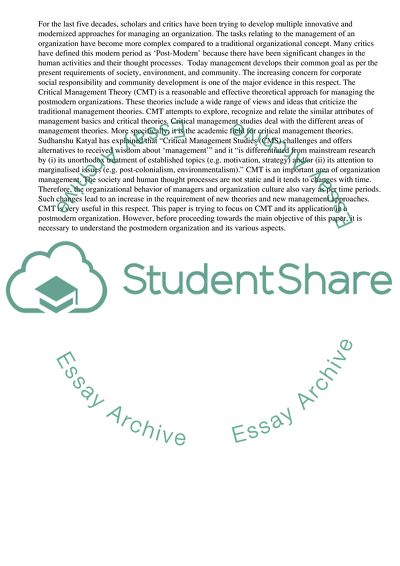Cite this document
(“Critical Management Theory and Its Application As an Analytical Tool Coursework - 1”, n.d.)
Critical Management Theory and Its Application As an Analytical Tool Coursework - 1. Retrieved from https://studentshare.org/management/1748214-critical-management-theorycmt-and-its-application-as-an-analytical-tool-for-resolving-problems-in-a-post-modern-organisation
Critical Management Theory and Its Application As an Analytical Tool Coursework - 1. Retrieved from https://studentshare.org/management/1748214-critical-management-theorycmt-and-its-application-as-an-analytical-tool-for-resolving-problems-in-a-post-modern-organisation
(Critical Management Theory and Its Application As an Analytical Tool Coursework - 1)
Critical Management Theory and Its Application As an Analytical Tool Coursework - 1. https://studentshare.org/management/1748214-critical-management-theorycmt-and-its-application-as-an-analytical-tool-for-resolving-problems-in-a-post-modern-organisation.
Critical Management Theory and Its Application As an Analytical Tool Coursework - 1. https://studentshare.org/management/1748214-critical-management-theorycmt-and-its-application-as-an-analytical-tool-for-resolving-problems-in-a-post-modern-organisation.
“Critical Management Theory and Its Application As an Analytical Tool Coursework - 1”, n.d. https://studentshare.org/management/1748214-critical-management-theorycmt-and-its-application-as-an-analytical-tool-for-resolving-problems-in-a-post-modern-organisation.


